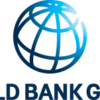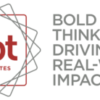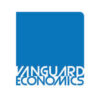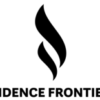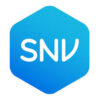Consultancy Services to Conduct Gender Equality and Social Inclusion (GESI) Analysis in Rwenzori, Kigezi, Greater Ankole, and Busoga Sub-regions tendering at SNV
Company Description
SNV is a mission-driven global development partner, rooted in the contexts and societies where we work. Inspired by the transformational principles and objectives set out by the SDGs, we are committed to building resilient agri-food systems that deliver food security and adequate nutrition; to increasing the reliability and availability of water and sanitation at an acceptable quantity and quality; and to improving access to affordable and sustainable energy for all. In doing so, we aim to strengthen institutions, markets and effective governance within and across the agri-food, energy, and water sectors, reducing gender inequalities and barriers to social inclusion, and enabling adaptation and mitigation to the climate and biodiversity crises.
We are one team of over 1,600 people, the vast majority of whom come from the contexts where we work, in more than 20 countries in Africa and Asia. In Uganda SNV operates through a decentralised approach with a country office in Kampala and regional offices in Fort Portal, Lira, Jinja, Kabale and Mbarara. SNV implements donor-funded activities across more than 100 districts in Uganda, ensuring broad and diverse impact.
Our ability to deliver results rests on our robust foundation of experience, knowledge, evidence and learning; our commitment to strengthening capacities and catalysing partnerships; and the relationships and trust of those we work alongside.
Our core values of people-centeredness and respect, equity and equality, and diversity and inclusion, are fundamental to who we are, and what we do. This is reflected in our vision and mission, and strategy, which sets out our aspirations and commitments as our compass towards 2030.
For more information on our operations in Uganda and SNV visit our website: www.snv.org
About the INCLUDE Project
Inclusive Livestock Development for Smallholder Farmers (INCLUDE) project is a five-year initiative funded by the Royal Netherlands Embassy in Uganda. The project aims at increasing living income and resilient livestock-based livelihoods for smallholder farmers in Busoga, Rwenzori, Greater Ankole, and Kigezi regions. The project ultimately targets 75,000 Small-Holder Farmers (SHFs) in the four sub-regions. INCLUDE adopted a farming systems approach integrating livestock and crops with livestock as an intervention entry point. Using the Participatory Integrated Planning (PIP) approach, the project aims at transforming subsistence farms into sustainable enterprises, involving all family members in strategic planning and execution. Additionally, INCLUDE will extend the parent-led school milk programme to Busoga districts and will collaborate with policymakers to develop and implement inclusive livestock policies that contribute to broader agricultural sustainability. This will ensure farmers’ effective engagement and contribution to finding solutions to their challenges and ownership of the interventions.
About the Study
The INCLUDE project is committed to Gender Equality and Social Inclusion (GESI). The project recognises that gender and social identities are dynamic and intersect with other collective intersectionality such as age, social class, tribal minorities, persons with disabilities, wealth status, and education level among others. Many of these groups remain trapped in a cycle of poverty or are excluded from solutions impacting their lives because of a lack of institutional support, societal biases, inadequate advocacy, and ignorance. INCLUDE seeks to empower marginalised groups such as women, refugees, single teenage mothers, People with Disabilities (PWDs), tribal minorities, the elderly, and people in remote geographies who are grossly disadvantaged in their access to and ownership of economic resources. The project team seeks to develop and utilise a context-based GESI strategy to ensure gender integration and the empowerment of these identified marginalised groups, particularly women, single teenage mothers and youth SHF. In view of that, the project is seeking to engage the services of a consultant(s) or consulting agency with expertise in gender transformative programming and Social behavioural Change communication (SBCC) approaches. The consultant will lead and inform the different project activities and approaches to be gender responsive and socially inclusive, through data collection and analysis; identify gender transformative approaches to enhance equitable service delivery.
Purpose of the Study
The primary objective of this study is to conduct a comprehensive Gender Equality and Social Inclusion (GESI) analysis in the Rwenzori, Kigezi, Greater Ankole, and Busoga sub-regions to identify and assess the socio-cultural, economic, and institutional factors that impact gender equality and social inclusion, with the ultimate goal of informing evidence-based strategies and recommendations for promoting gender equality and social inclusion in these regions.
Objectives
The following specific objectives with sub-themes/question, in addition to the consultants’ suggestions will guide in conducting a comprehensive GESI analysis
1. To analyse the current status of gender equality and social inclusion in the selected sub-regions:
Identify the prevalence and nature of gender-based violence (GBV), sexual exploitation, and discrimination against women, men, youth, PWDs and other marginalized groups.
Assess the representation of women and other marginalised groups in decision-making positions, leadership, and community structures.
Evaluate the access to education, healthcare, economic opportunities, and other essential services for women and marginalised groups.
Understand Gendered access and control issues as well as evaluate access to and control over resources (such as land, livestock, inputs, credit) and benefits derived from livestock activities by gender.
2. To identify the key barriers and challenges to gender equality and social inclusion:
Analyse the root causes of GBV, sexual exploitation, and discrimination against women, men, youth, PWDs and other marginalized groups.
Identify the institutional, cultural, and social barriers that hinder youth, PWDs and women’s participation in decision-making processes.
Examine the lack of access to information, economic opportunities, and other essential services faced by marginalised groups.
3. To identify best practices and success stories in promoting gender equality and social inclusion:
Document successful initiatives, programs, or policies that have promoted gender equality and social inclusion in the selected sub-regions.
Identify organisations, individuals, or institutions that have demonstrated commitment to promoting gender equality and social inclusion and responding to GBV.
4. To develop recommendations for improving gender equality and social inclusion in the selected sub-regions:
Based on the analysis, propose strategies/ recommendations for addressing identified barriers and challenges to gender equality and social inclusion.
5. To provide a framework for monitoring and evaluation of GESI initiatives in the selected sub-regions:
Develop a monitoring and evaluation framework that can be used to track progress towards achieving gender equality and social inclusion goals.
Consultants Scope of work.
Review project documents, reports, and relevant literature to understand the project context, objectives, and existing gender considerations.
Conduct field visits to selected project sites in the Rwenzori, Kigezi, Greater Ankole, and Busoga Subregions. Engage with stakeholders including smallholder farmers, community leaders, local authorities, and project staff to gather qualitative and quantitative data.
Employ participatory methods such as focus group discussions (FGDs), key informant interviews (KIIs), household surveys, and observation to gather gender-disaggregated data on roles, responsibilities, access to resources, decision-making processes, and perceived benefits.
Analyse collected data using gender-sensitive lenses to identify patterns, disparities, and opportunities related to gender in livestock development.
Prepare a comprehensive gender analysis report outlining findings, conclusions, and actionable recommendations. The report should include disaggregated data, quotes from respondents, and visual representations (charts, graphs) where appropriate.
Present findings and recommendations to SNV Uganda and relevant stakeholders for feedback and validation.
Analysis Framework
Our GESI conceptual framework aims to empower women and potentially marginalised people to realise their basic rights, secure decent work, successfully establish and grow their businesses or increase their agricultural productivity, income, and resilience to shocks.
Our conceptual framework is rooted in Kabeer’s 1999 model, with three pillars:
Access – power to/over: equal access to resources, land, inputs, paid work and finance.
Agency – power within: decision making, choices and self-confidence.
Voice – power with meaningful and equal participation, networks, and relationships, influence in communities and governance systems.
The framework operates with an enabling environment of systems transformation, with structures and institutions that support gender equality and social inclusion (including spaces, institutions, governments, and businesses)
The consultant should use a gender analysis framework that will facilitate the identification of the different constraints that young mothers, youth and women face in accessing women’s economic empowerment opportunities and enjoying gender equal rights. These constraints can be those emanating from their own lives (agency), from their entourage with implications for the lives of young girls – relations, or the more structural (structures) barriers within the input and output markets.
Job Description
Expected Deliverables
Inception Report outlining the methodology for contextual relevance, work plan, and tools for data collection.
Collect data, including reviews of secondary information, focus groups and key informant interviews.
Develop / adapt the framework for conducting the gender analysis for contextual relevance.
A written report detailing the findings of the literature review
Detailed report including findings, analysis, and prepare recommendations on best practices for translating some of them into solutions for some of the key constraints identified during the analysis.
Revise reports and recommendations following feedback from SNV
A Power-point summary of the gender analysis report
Develop a Gender equality and Social Inclusion strategy outlining gender responsive approaches for addressing the constraints identified.
Qualifications
Qualifications
Demonstrated experience in conducting a comprehensive gender analysis within agricultural, Livestock or rural development contexts.
The Gender Specialist should have at least 10 years of professional experience and a demonstrated track record of conducting gender analysis for women’s economic empowerment projects.
Familiarity with livestock production systems and market dynamics in Uganda.
Strong analytical and report writing skills.
Ability to communicate effectively with diverse stakeholders.
Proficiency in English; knowledge of local languages in the target regions is an advantage.
The consultant should have a master’s degree in Gender studies, sociology, anthropology, or a related field.
Knowledge of inclusive market systems approach and an understanding of the livestock/ agricultural market dynamics or trends will be an asset.
Additional Information
Period of Assignment
The assignment is expected to be completed within 60 working days from the contract signing.
Reporting
The research team will provide regular progress updates to the Gender Equality and Social Inclusion Advisor on behalf of SNV, culminating in a final report with findings and recommendations.
Budget
The study budget will be based on the scope of work, including data collection, analysis, logistics, and reporting, detailed in the study proposal.
Ethical Considerations
The study will adhere to ethical guidelines, ensuring confidentiality and obtaining informed consent from respondents before conducting interviews or surveys.
Application process and timeline
SNV invites interested individuals and companies to submit the following application documents:
Expression of interest outlining how the consultant(s) meets the selection criteria and their understanding of the ToR and methodology.
A proposed activities schedule/work plan with a time frame.
Copy of CV of the consultant(s) who will undertake the evaluation.
One recent example of a similar evaluation report written by the applicant.
Legal and administrative documents (Trading License, tax clearance, certificate of incorporation, MOU among others.
Financial proposal detailing consultant(s) itemised fees, data collection and administrative costs (NB – Payment of consultancy fee is subject to 6% withholding tax unless there is evidence of exemption).
Payment terms – Payments shall be in line with SNV payment policy.
How to apply
If you believe that your credentials meet the outlined profile, we invite you to apply Deadline is Tuesday 10th December 2024.
More Information
- Address Kampala, Uganda ,East Africa
- Salary Offer Not disclosed
- Total Years Experience 0-5
- Education Level Bachelor Degree
- Work hours 8

